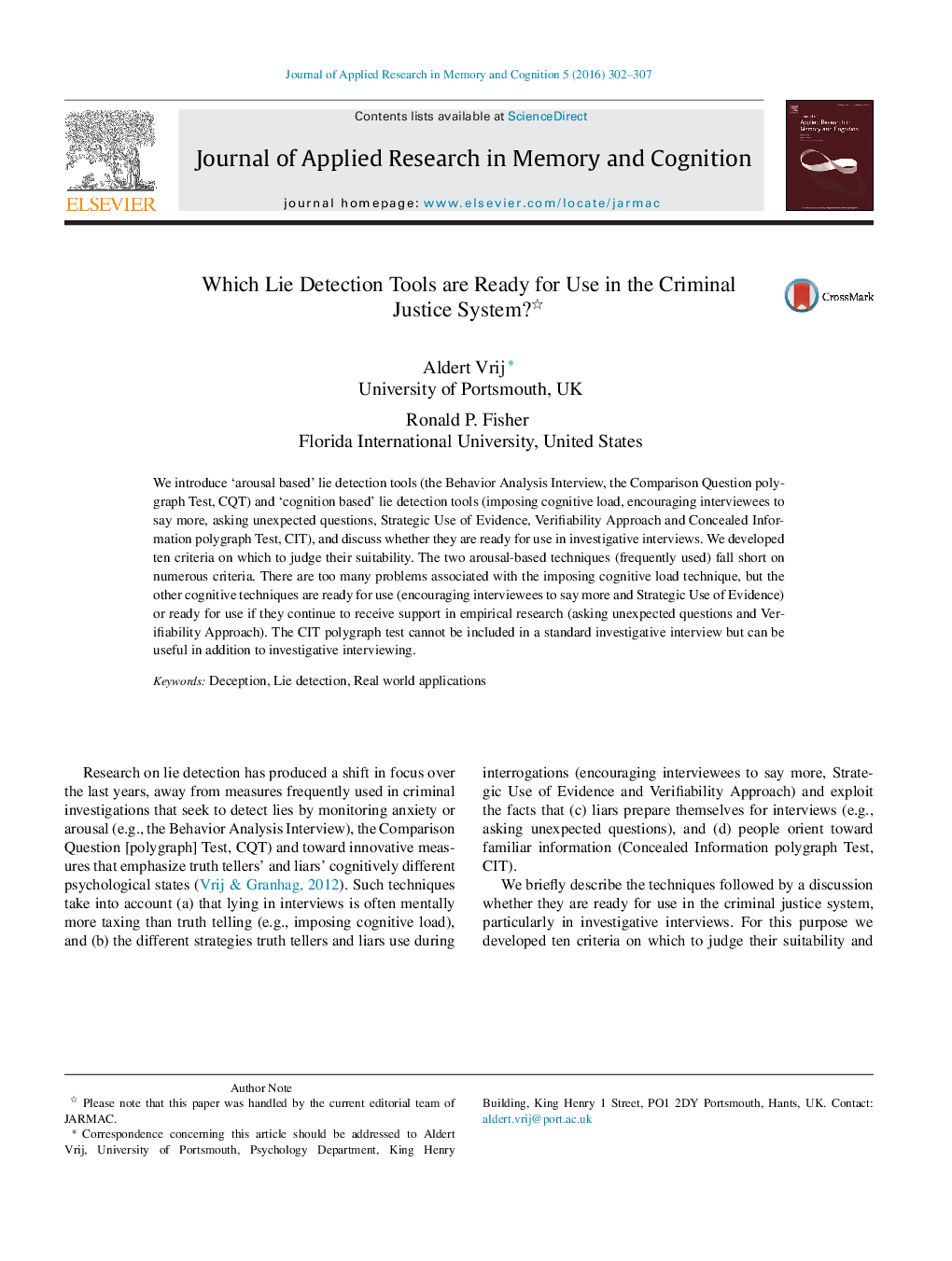| Article ID | Journal | Published Year | Pages | File Type |
|---|---|---|---|---|
| 5034047 | Journal of Applied Research in Memory and Cognition | 2016 | 6 Pages |
Abstract
We introduce 'arousal based' lie detection tools (the Behavior Analysis Interview, the Comparison Question polygraph Test, CQT) and 'cognition based' lie detection tools (imposing cognitive load, encouraging interviewees to say more, asking unexpected questions, Strategic Use of Evidence, Verifiability Approach and Concealed Information polygraph Test, CIT), and discuss whether they are ready for use in investigative interviews. We developed ten criteria on which to judge their suitability. The two arousal-based techniques (frequently used) fall short on numerous criteria. There are too many problems associated with the imposing cognitive load technique, but the other cognitive techniques are ready for use (encouraging interviewees to say more and Strategic Use of Evidence) or ready for use if they continue to receive support in empirical research (asking unexpected questions and Verifiability Approach). The CIT polygraph test cannot be included in a standard investigative interview but can be useful in addition to investigative interviewing.
Keywords
Related Topics
Social Sciences and Humanities
Psychology
Applied Psychology
Authors
Aldert Vrij, Ronald P. Fisher,
